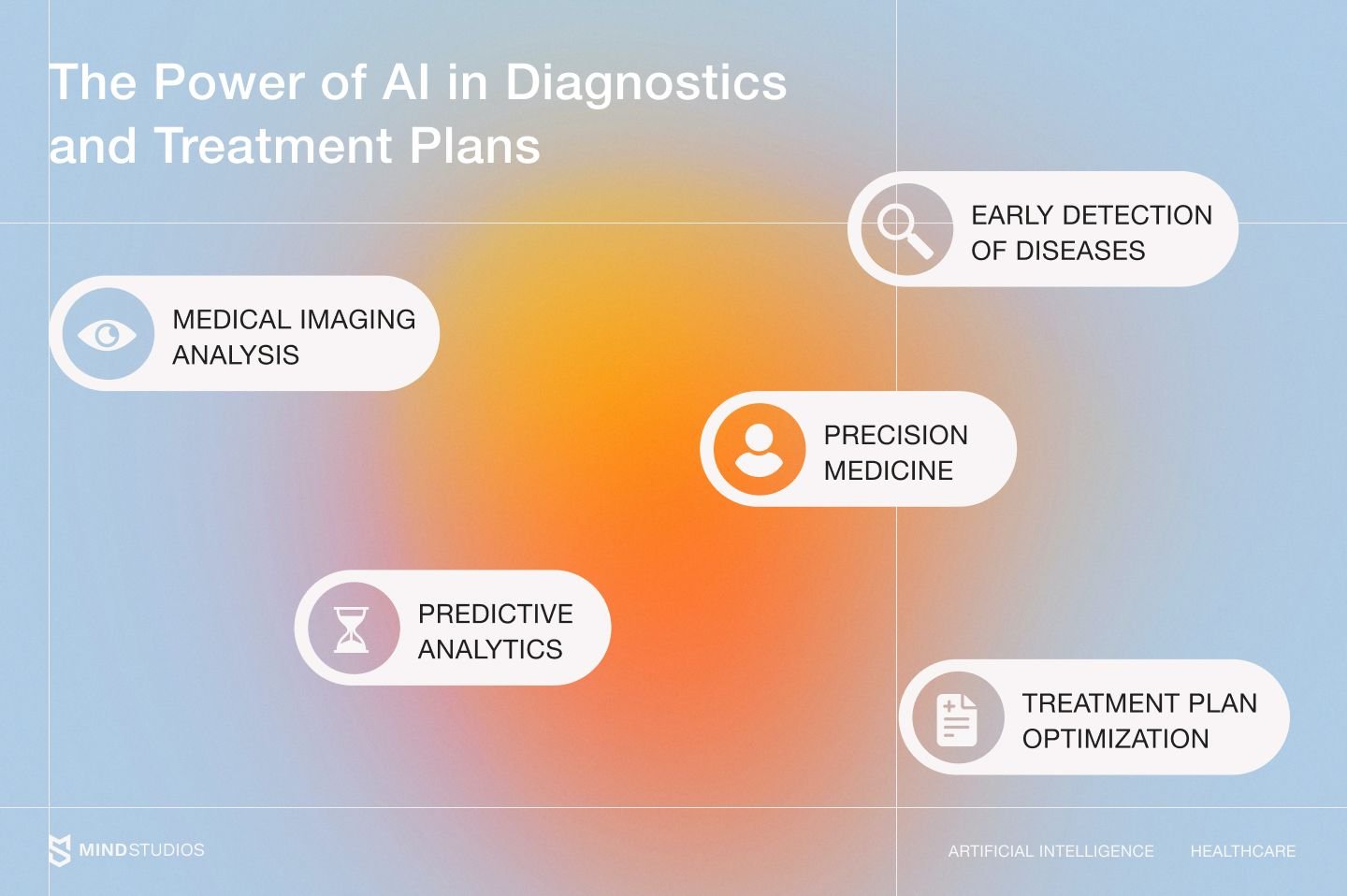Artificial Intelligence (AI) is transforming the healthcare sector by offering remarkable advancements in early disease diagnosis and the creation of personalized treatment plans. This technology’s integration into healthcare is making significant strides towards enhancing patient outcomes, reducing healthcare costs, and improving the efficiency of healthcare services.
This article will explore how AI assists in early disease diagnosis and the development of personalized treatment plans.
Early Disease Diagnosis
Predictive Analysis: AI systems can process and analyze vast amounts of medical data, including genetic information, medical histories, and lifestyle factors, to identify patterns that might indicate the early stages of a disease. This predictive analysis helps in diagnosing diseases like cancer, diabetes, and heart conditions at an earlier stage, when they are often more treatable.
Medical Imaging: Through advanced algorithms, AI can interpret medical images such as X-rays, MRIs, and CT scans more quickly and accurately than human radiologists in some cases. It can detect anomalies that might be overlooked by the human eye, leading to early diagnosis of conditions such as tumors, fractures, and neurological disorders.
Wearable Technology: AI-powered wearable devices monitor vital signs and other health indicators in real-time, alerting users and healthcare providers to potential health issues before they become serious. These devices can track heart rate, blood pressure, glucose levels, and more, playing a crucial role in early disease detection.
Personalized Treatment Plans
- Data-Driven Decisions: By analyzing a patient’s medical history, genetic profile, and current health status, AI algorithms can suggest customized treatment plans that are more likely to be effective for the individual. This approach takes into account the unique factors affecting each patient, leading to higher success rates and improved patient satisfaction.
- Drug Development and Precision Medicine: AI assists in identifying potential therapeutic compounds and predicting their effectiveness for specific diseases and patient groups. This accelerates the drug development process and supports the growth of precision medicine, where treatments are tailored to the individual characteristics of each patient.
- Continuous Monitoring and Adjustment: AI systems can continuously monitor patient responses to treatments and adjust them as needed. For chronic conditions like diabetes and heart disease, this means that treatment plans can evolve based on real-time data, ensuring that patients receive the most effective care at all times.
Conclusion
The application of AI in healthcare is revolutionizing the way diseases are diagnosed and treated. By leveraging AI for early disease diagnosis and personalized treatment plans, healthcare providers can offer more effective, efficient, and customized care. This not only improves patient outcomes but also contributes to the overall advancement of medical science.
As AI technology continues to evolve, its role in healthcare is expected to expand, bringing about further innovations that will shape the future of medicine.
